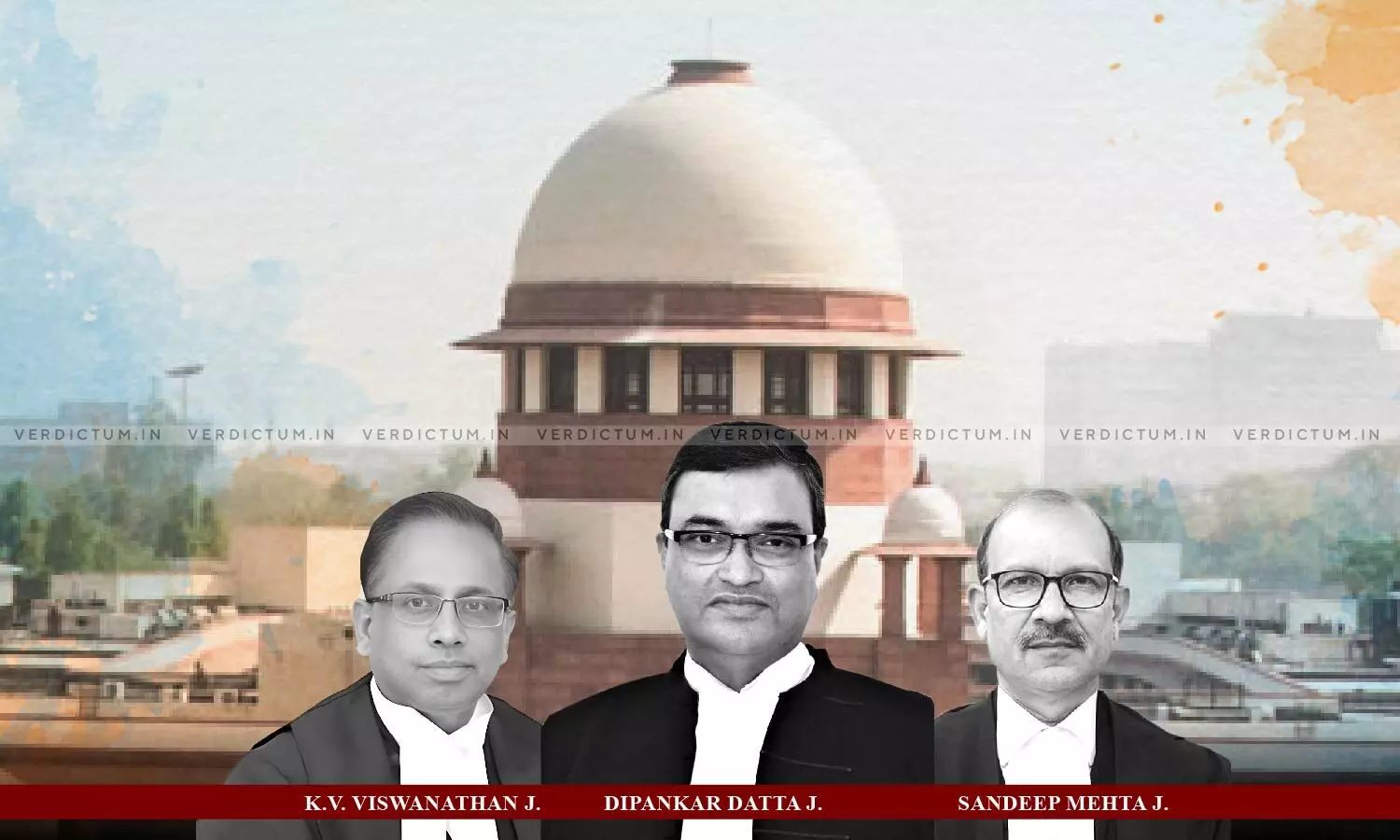
Right To Dignity & Personal Liberty Not To Be Put To Jeopardy Based On Half-Baked Evidence: SC Acquits School Teachers In POCSO Case
 |
|The Supreme Court acquitted two teachers in a sexual harassment case.
The court said that the right to live with dignity and personal liberty should not be jeopardised by half-baked evidence.
The victim, a minor 8th-standard student, had complained to her parents about being subjected to sexual harassment in her classroom by her school teacher. The special court convicted the two school teachers under Section 12 of the POCSO Act and Section 506 of the IPC respectively. The Madras High Court did not interfere with the findings of the special court.
The Supreme Court, however, stated that though conviction could be recorded on the sole evidence of a victim, it must undergo strict scrutiny.
The Court called the version of the testimony of the victim “muddled and prevaricated” and therefore held that the evidence presented left “reasonable suspicion” as to whether the teacher was involved in any criminal act.
Justice Dipankar Datta, Justice K.V. Viswanathan, and Justice Sandeep Mehta observed, “On the face of such evident discrepancies, recording conviction becomes untenable, as the foundation of the case crumbles under the weight of doubt. While we might have chosen to overlook other contradictions and solely relied on the victim's account, considering her as a ‘sterling witness’, her version appears muddled and prevaricated, much less coherent. It is precisely these inconsistencies and contradictions, which are material, that compel us to reject the case set up by the prosecution before the Special Court with which the High Court concurred adopting a flawed approach.”
AOR E. R. Sumathy represented the appellants, while Sr. AAG V. Krishnamurthy appeared for the respondent.
The Court took note of the submission made by the teachers that a past incident of sexual harassment in the school involving a relative of the victim's parents led to animosity between the parties since both the teachers had initiated action against the relative/teacher. Another dimension to the animosity was revealed through evidence of promotional politics in the school faculty.
The Court to this effect held, “The victim herein is thus alleged to be a mere pawn in an act of revenge orchestrated by P.W.1 to falsely implicate the accused. While we do not believe it to be likely that an innocent child would be so cruelly used by her parents, we also cannot deem it to be entirely outside the realm of possibility.”
It was argued that “an act of sexual harassment of a girl student (who is also a minor) by any teacher would figure quite high in the list of offences of grave nature since it has far-reaching consequences.”
In response, the Court stated that “it is axiomatic that reputation is earned by a teacher upon rendering service over the years and an accusation like the present would remain as an indelible mark marring his entire future life.”
The Court held that “the prosecution's case has been marked by lacklustre efforts, revealing a poorly executed endeavour that gives rise to substantial doubts regarding the integrity of the case.”
Consequently, the Court remarked that the prosecution was unable to prove the charges of sexual harassment under Section 11 of the POCSO Act since inadequacies marred the evidence and there were contradictions within statements and testimonies of the witnesses and the victim.
The Supreme Court set aside the conviction recorded by the special court and acquitted the school teachers
Accordingly, the Supreme Court allowed the appeal.
Cause Title: Nirmal Premkumar & Anr. v. State (Neutral Citation: 2024 INSC 193)
Appearance:
Appellants: AOR E. R. Sumathy
Respondent: Sr AAG V. Krishnamurthy; AOR D. Kumanan; Advocates Sheikh F. Kalia, Deepa. S and Veshal Tyagi